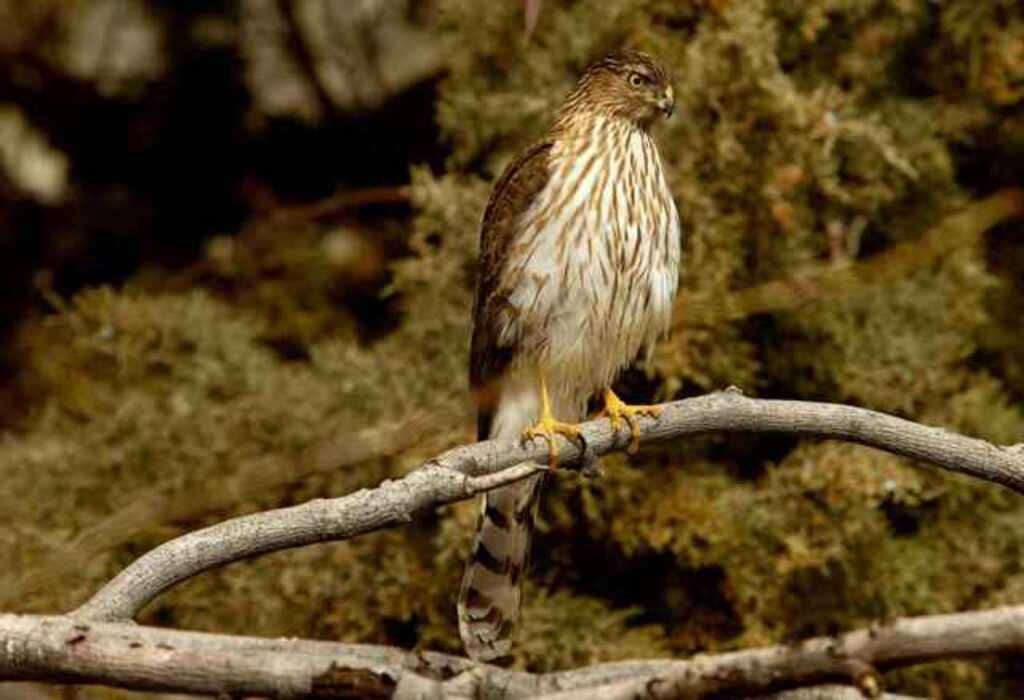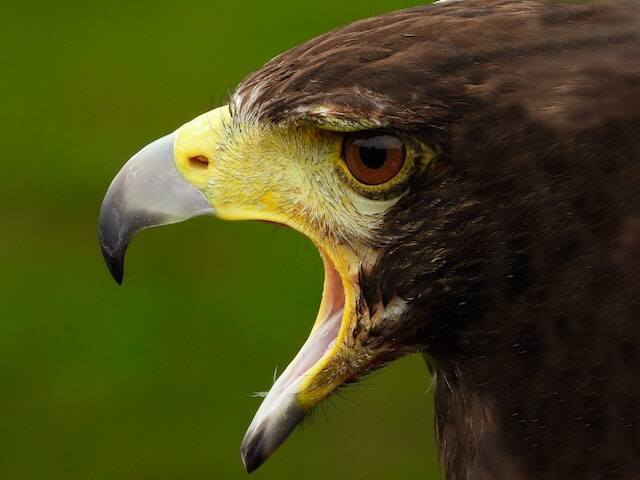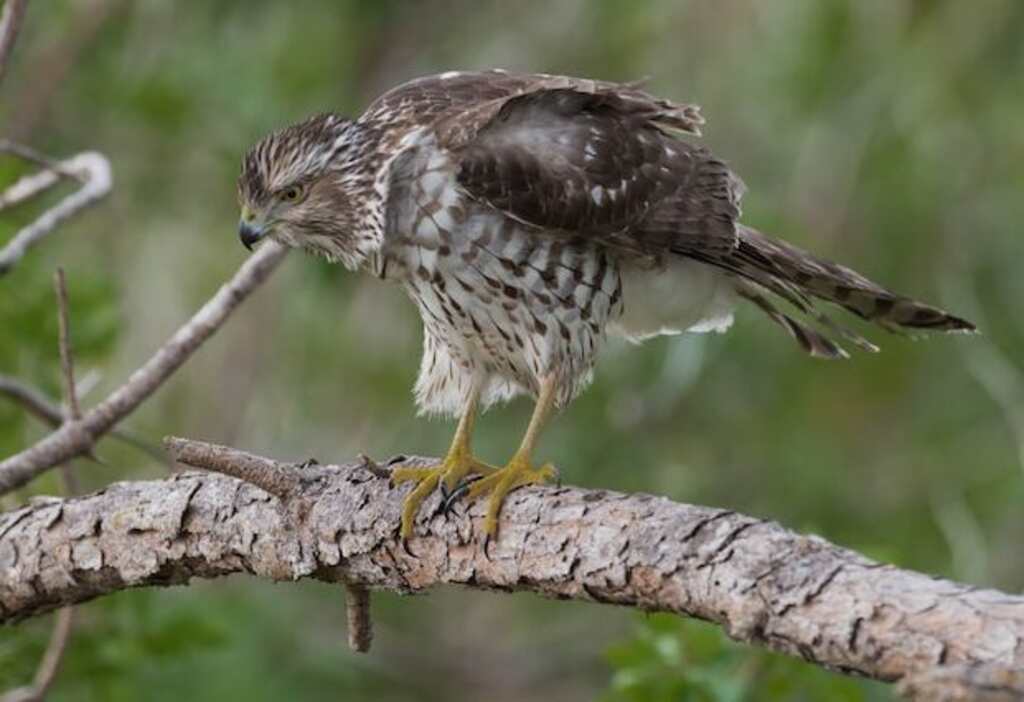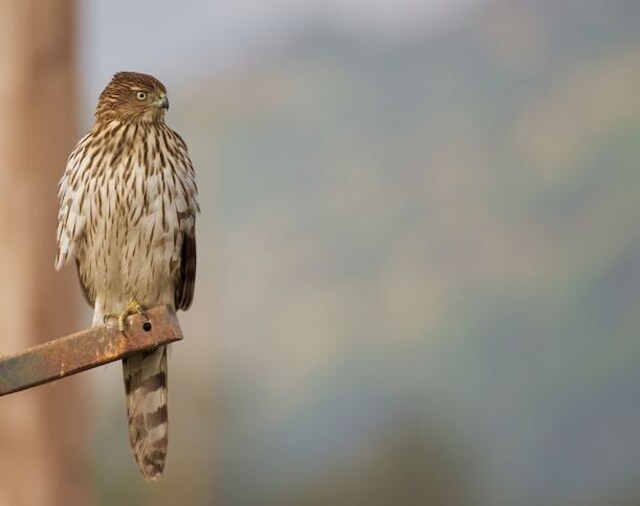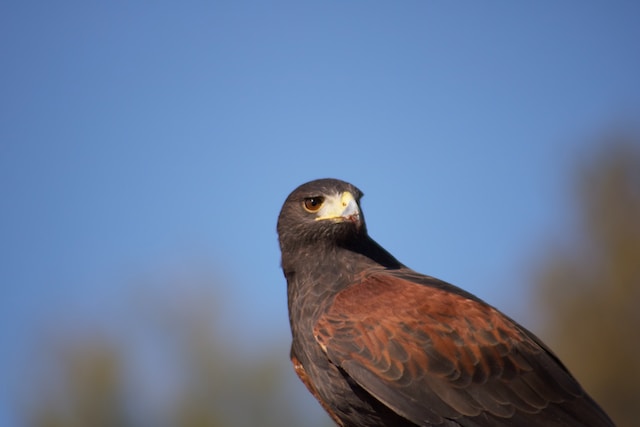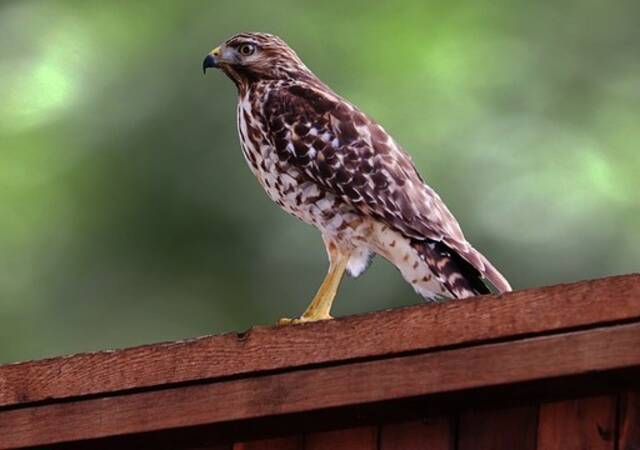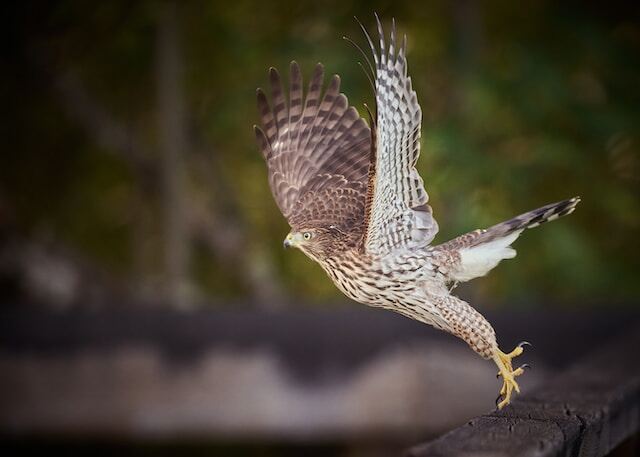Hold onto your four-leaf clovers and rabbit’s feet, folks! Today, we embark on a whimsical journey to answer the age-old question: Do hawks bring good luck? Short answer: Yes, they can!
The belief in animals as symbols of good fortune is a cross-cultural phenomenon, and hawks, with their reputation for luck, power, and strength, have become one of those celebrated creatures.
But is there more to this belief than mere superstition?
Join us as we explore the cultural traditions, historical origins, and even scientific aspects that shape our understanding of this captivating relationship between hawks and good fortune.
Get ready to soar through the mystical feathers of fortune and uncover the secrets behind this extraordinary phenomenon!
Table of Contents
- 1 Key Takeaways
- 2 Do Hawks Bring Good Luck?
- 3 Hawks as Symbols of Power and Strength
- 4 The Origins of the Belief in Hawks as Bringers of Good Luck
- 5 The Science Behind the Belief
- 6 The Role of Hawks in Mythology and Folklore
- 7 Different Cultures and Traditions that Embrace Hawks as Symbols of Good Luck
- 8 Hawk Superstitions and Beliefs
- 9 Modern Interpretations and Applications of the Belief in Hawks as Bringers of Good Luck
- 10 Skeptical Views and Criticisms
- 11 Conclusion: The Complexity and Fascination of the Relationship between Hawks and Good Luck
- 12 Frequently Asked Questions
- 13 Author
Key Takeaways
- Hawks have been believed to bring good luck, power, and strength in many cultures and traditions worldwide.
- Hawks are revered as symbols of power, strength, and freedom, evoking awe and admiration.
- The belief in hawks as bringers of good luck is not universal, and different cultures have varying interpretations of the bird’s symbolism.
- Hawks are important for conservation efforts as they are apex predators and play a crucial role in maintaining the balance of ecosystems.
Do Hawks Bring Good Luck?
Hawks are often associated with good luck in various cultures and folklore. They are seen as symbols of vision, strength, and intuition.
While there is no scientific evidence to support the notion of hawks bringing luck, many people consider their presence or sighting to be a positive sign or a reminder to stay aware and focused.
Hawks as Symbols of Power and Strength
Hawks have long been revered as symbols of power and strength, evoking awe and admiration in those who observe their commanding presence.
Hawk symbolism is evident in various cultures, from Native American tribes to ancient Egyptian mythology, where hawks were seen as guardians of the pharaohs.
In Celtic folklore, hawks were associated with victory and were believed to be messengers of the gods.
Hawks also hold cultural significance in Hinduism, where they are considered the vehicle of Lord Vishnu, a symbol of power and protection.
The hawk’s sharp eyesight and swift movements are what contribute to their representation of power, strength, and victory.
These attributes have led to the hawk being a popular symbol in heraldry and military emblems.
The origins of the belief in hawks as bringers of good luck can be traced back to various cultures, where they were seen as auspicious omens and symbols of protection.
The Origins of the Belief in Hawks as Bringers of Good Luck
The belief in hawks as bringers of good luck has historical and cultural significance in various parts of the world.
This belief is often related to religious beliefs and practices, particularly in ancient cultures where hawks were considered sacred animals.
Understanding the origins of this belief can provide insights into how human societies have historically viewed the natural world and the significance of certain animals in their culture and belief systems.
Historical and Cultural Significance
Throughout history, various cultures have attached different meanings and values to the presence of hawks in their surroundings.
In modern culture, hawks are often associated with freedom, strength, and power, and are often used as symbols in advertising, sports teams, and other forms of media.
However, beyond their symbolic value, hawks are also important for conservation efforts, as they are apex predators and play a crucial role in maintaining the balance of ecosystems.
Despite their importance, hawks have also been persecuted throughout history, with many species facing habitat loss, hunting, and other threats.
As a result, many conservation efforts have been put in place to protect hawks and their habitats.
Looking at the cultural and historical significance of hawks, it is clear that they hold a special place in human consciousness, representing both power and vulnerability.
Moving forward, it is important to continue to protect these majestic birds and their habitats, not only for their symbolic value, but also for their ecological importance.
With this in mind, it is interesting to explore the religious beliefs surrounding hawks, which offer a unique perspective on their place in the world.
Religious Beliefs
Religious beliefs surrounding hawks offer a unique perspective on the role of these birds in different cultures and their connection to the divine.
In modern society, hawks are considered a symbol of good luck and prosperity, but this belief is often attributed to superstitions rather than scientific evidence.
Debunking hawk superstitions may challenge some deeply held beliefs, but it is important to understand the truth behind these cultural practices.
In some religions, hawks are seen as messengers of the gods or as embodiments of the divine. However, these beliefs are not universal and vary greatly depending on the region and culture.
The scientific study of hawks and their behavior can provide valuable insights into the role they play in the ecosystem and the natural world.
Understanding the science behind the belief in hawks can help us appreciate the beauty and majesty of these birds without relying on superstitions or unsupported claims.
In the subsequent section about the science behind the belief, we will explore the physical characteristics and behavior of hawks to gain a deeper understanding of their place in the natural world.
The Science Behind the Belief
The belief in hawks as bringers of good luck is deeply ingrained in many cultures around the world. However, is there any scientific basis to this belief?
To answer this question, it is important to look at the behavior and habitat of hawks, as well as the circumstances of hawk sightings and coincidences that are often associated with good luck.
By examining these factors, we can begin to understand the science behind the belief in hawks as symbols of good fortune.
Hawk Behavior and Habitat
Hawk behavior and habitat are closely related to their hunting and feeding patterns. Hawks are known for their exceptional hunting skills and have evolved to be highly efficient predators.
They have sharp talons and beaks that allow them to catch their prey, which consists of small mammals, birds, and reptiles.
Hawks are also territorial animals and will defend their nests fiercely. They prefer to nest in tall trees or on high cliffs, where they have a clear view of their surroundings and can spot potential prey.
Their nesting behaviors are carefully planned to ensure the survival of their offspring. Hawks are known to mate for life and are very protective of their young.
They will hunt tirelessly to provide food for their offspring.
The habitats of hawks vary depending on the species, but they can be found in forests, deserts, grasslands, and even in urban areas.
Hawks are often seen soaring high in the sky, searching for prey or scouting their territory. As they fly, they use the thermals to stay aloft and save energy.
Their behavior and habitat are fascinating to observe, and understanding it can help us appreciate these magnificent birds even more.
With this understanding, we can now move on to the subsequent section about hawk sightings and coincidences.
Hawk Sightings and Coincidences
One fascinating aspect of observing hawks is the occurrence of sightings and coincidences that are often considered remarkable by some individuals.
These sightings can range from observing a hawk perched on a tree branch in a local park to spotting one flying over a busy city street.
Interestingly, hawk sightings in urban areas have become more common in recent years, as these birds of prey have adapted to living in city environments.
Additionally, hawks have been appropriated for their symbolism in various cultures, such as Native American traditions, where they are believed to represent strength, courage, and freedom.
However, the cultural appropriation of hawk symbolism has led some to question the true meaning behind these sightings and whether or not they bring good luck.
This raises the question of the role of hawks in mythology and folklore, which will be explored in the subsequent section.
The Role of Hawks in Mythology and Folklore
Throughout history, hawks have played significant roles in the mythologies and folklore of various cultures, symbolizing everything from power and freedom to divinity and death.
The historical evolution of hawks as cultural symbols is vast and varied, with different cultures incorporating their own unique interpretations of the bird.
In ancient Egyptian mythology, hawks were associated with the god Horus, who was believed to be both a sky god and a god of war.
In Native American folklore, hawks were seen as messengers between the spirit world and the living, and were believed to possess healing powers.
Across cultures, hawks have been seen as symbols of sharp vision, strength, and a connection to the divine.
The role of hawks in mythology and folklore continues to fascinate people today, as they are often associated with the desire for freedom and independence.
The next section will explore different cultures and traditions that embrace hawks as symbols of good luck.
Different Cultures and Traditions that Embrace Hawks as Symbols of Good Luck
The role of hawks in mythology and folklore has been established in the previous subtopic. However, their significance goes beyond these stories and is reflected in different cultures and traditions worldwide.
Hawks have been embraced as symbols of good luck and prosperity in various regions, including Asia, Europe, and America.
For instance, in Japan, hawks are associated with nobility and are believed to bring good fortune.
Similarly, in Native American culture, hawks are regarded as messengers of the spirit world and are considered sacred.
This cultural diversity demonstrates the universal appeal of hawk symbolism and highlights the bird’s enduring significance.
The concept of hawks bringing good luck is not limited to a specific region or culture, making it a fascinating subject of study.
Moving forward, we will explore the various hawk superstitions and beliefs, building upon the cultural significance established in this section.
Hawk Superstitions and Beliefs
A plethora of beliefs and superstitions center around the hawk, as it is perceived as a harbinger of fortune and prosperity in various cultures worldwide.
Hawk symbolism is embedded in cultural diversity, with each culture attributing unique meanings to the bird.
Some cultures believe that hawks symbolize strength, courage, and power, while others associate them with wisdom and insight.
In Native American cultures, hawks are believed to be messengers of the spirit world and are revered for their spiritual significance.
Additionally, some cultures believe that hawks bring good fortune and prosperity, while others associate them with bad omens and misfortune.
Regardless of the diverse beliefs and superstitions surrounding hawks, it is evident that they hold a significant place in the human psyche.
The bird’s ability to soar high in the sky with keen vision and precision has captivated human imagination for centuries.
As such, it is no surprise that various cultures have woven hawk symbolism into their traditions and beliefs.
The hawk’s role as a symbol of good luck continues to capture the imagination of people worldwide, with many seeking to incorporate the bird’s power and prowess into their lives.
The belief in hawks as bringers of good luck has transcended time and continues to influence modern interpretations and applications of the belief in hawks as bringers of good luck.
Modern Interpretations and Applications of the Belief in Hawks as Bringers of Good Luck
Contemporary society’s fascination with the hawk as a symbol of prosperity and good fortune has led to its incorporation in various fields, including business, fashion, and sports.
The psychological impact of the belief in hawks as bringers of good luck has been studied and found to have positive effects on individuals, including increased motivation and optimism.
Modern day symbolism of hawks as powerful and majestic animals also contributes to their association with success and good fortune.
However, there are skeptical views and criticisms of the belief in hawks as bringers of good luck, citing the lack of scientific evidence supporting the notion.
Skeptical Views and Criticisms
Like a mirage in the desert, the belief in hawks as bearers of prosperity and success appears to lack concrete evidence, inviting skepticism and criticism from some quarters.
Skeptical perspectives point out that cultural misconceptions and superstitions often drive the belief in hawks as bringers of good luck.
Hawks are predators that primarily hunt small prey, and their presence does not guarantee success or prosperity.
Moreover, the belief in hawks as auspicious symbols is not universal, and different cultures have varying interpretations of the bird’s symbolism.
Critics of the belief in hawks as good luck charms argue that the idea is based on subjective experiences and anecdotes and lacks empirical evidence to support it.
Despite the apparent lack of evidence, the belief in hawks as lucky animals persists, highlighting the complexity and fascination of the relationship between humans and animals.
Conclusion: The Complexity and Fascination of the Relationship between Hawks and Good Luck
The belief in hawks as symbols of prosperity and success, despite the lack of concrete evidence, underscores the intricate and captivating relationship between humans and animals in cultural beliefs and superstitions.
This relationship is manifested in the various hawk mythologies across different cultures and the personal experiences of individuals who have encountered hawks and attributed their good luck to the bird.
However, the complexity of this relationship cannot be reduced to a simple cause-and-effect explanation.
It is a reflection of the deep-seated human desire for meaning and connection, and the fascinating ways in which we construct our beliefs and understandings of the world around us.
As such, the belief in hawks as bringers of good luck is both a testament to the power of cultural beliefs and a reminder of the complexity of the human experience.
| Emotion | Description | Example |
|---|---|---|
| Awe | A feeling of reverence and admiration for something that is grand and inspiring | Witnessing a hawk soaring gracefully in the sky |
| Wonder | A feeling of curiosity and amazement at something that is mysterious or unknown | Observing a hawk’s keen eyesight and sharp talons |
| Hope | A feeling of optimism and expectation for a positive outcome | Believing that seeing a hawk is a sign of good luck and prosperity |
| Freedom | A feeling of liberation and autonomy | Feeling a sense of liberation when watching a hawk in flight, soaring above the constraints of the earth |
Frequently Asked Questions
How do hawks mate and reproduce?
“During the breeding season, hawks engage in elaborate courtship rituals, including aerial displays and mutual food sharing. Once a mate is selected, they build a nest together, with the male providing most of the materials. The female then lays eggs, and both parents take turns incubating and feeding the chicks.”
What is the average lifespan of a hawk?
The average lifespan of a hawk varies by species and environmental factors. Some species, such as the Red-tailed Hawk, can live up to 20 years in the wild. Hawk migration and breeding patterns also play a role in their longevity.
How do hawks hunt and what is their preferred prey?
Hawks hunt using their keen eyesight, speed, and agility, often targeting small mammals, birds, and reptiles. Their ecological role as predators helps maintain balance in their habitats. Understanding their hunting techniques and prey preferences is crucial for conservation efforts.
What are the different species of hawks and how do they differ in appearance and behavior?
Hawks classification involves different species such as the Red-tailed, Cooper’s, and Sharp-shinned hawks. Physical features vary among species including size, coloration, and wing shape. Behaviors differ in hunting techniques, migration patterns, and preferred habitats.
How do hawks communicate with each other?
Hawks communicate through a variety of vocalizations and body language, including calls, postures, and movements. These signals convey information about territory, mating, and prey. Their communication is essential for survival and reproductive success.

